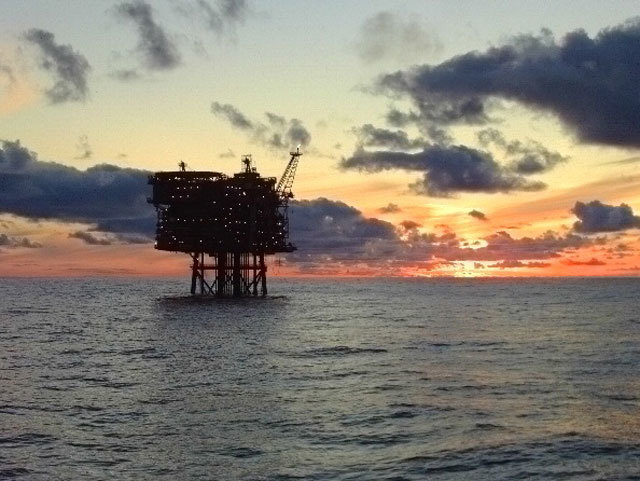
The industry must stop the “race to be second” if decommissioning is to be truly successful, an industry leader has said.
Gordon Ballard, vice president of industry affairs and chairman of Schlumberger UK, was addressing delegates at the three-day decommissioning conference in St Andrews when he made the sector-wide plea.
Instead, the seasoned industry veteran insisted the 30-year stretch of decommissioning would only be successful through a more collaborative approach.
He said: “Often companies that take the lead on innovation find that they incur all the costs of innovation while those that follow gain all the advantages. Innovation is costly and there can often be a ‘race to be second’ mentality throughout the industry – together as an industry we cannot afford to take this approach for decommissioning.”
According to the Royal Academy of Engineering, when companies apply lessons learned from previous decommissioning ventures they can shave a potential 10% to 15% off final costs.
But according to Gordon, it can’t just be a cost savings exercise – lessons need to be learned hard and fast.
He said: “There is an enormous challenge ahead; potentially almost all of the infrastructure put in place in the North Sea will require decommissioning over the next 30 years in a safe and responsible manner, a task that must be carried out in one of the harshest offshore environments.
“The size and tonnage weight of these installations is colossal – OSPAR estimates suggest that this will amount to more than 3.5 million tonnes. To put this in some perspective, it is equivalent to 1700 London Eyes or 500 Eiffel Towers.”
The first lesson includes cultivating the right skills to support the emerging industry, which is expected to last three decades, cost between £35billion to £40billion and include more than 470 offshore installations, 5,000 wells and 25,000 kilometres of pipelines.
“As an industry, let us not repeat the mistake of not recruiting young people in early enough, let us hire and train people now so that we have workers with the right skill set and experience for the decommissioning phase,” he said.
Designing bespoke decommissioning apprenticeships and promoting it as a long-term opportunity for young engineers are just two of Gordon’s suggestions for addressing the chronic skills need.
But ultimately, decommissioning offers a new lease on life for the North Sea in the unconventional sense, according to the company leader.
“The UK North Sea is at a defining moment in its history. Decreasing production levels and rising operational costs are all fuelling a sense of uncertainty. However despite these challenges, we recognise a rich source of opportunity for the industry to maximise oil and gas recovery and to build a decommissioning future fostered on collaboration and innovation and one that is focused on developing market based solutions and supported by a new independent regulator,” he said.
“Let us capture this unprecedented opportunity; a strong decommissioning future can be the engine for growth for decades to come, let us build the future together and lead the way to become the decommissioning champions of the world.”
Recommended for you
